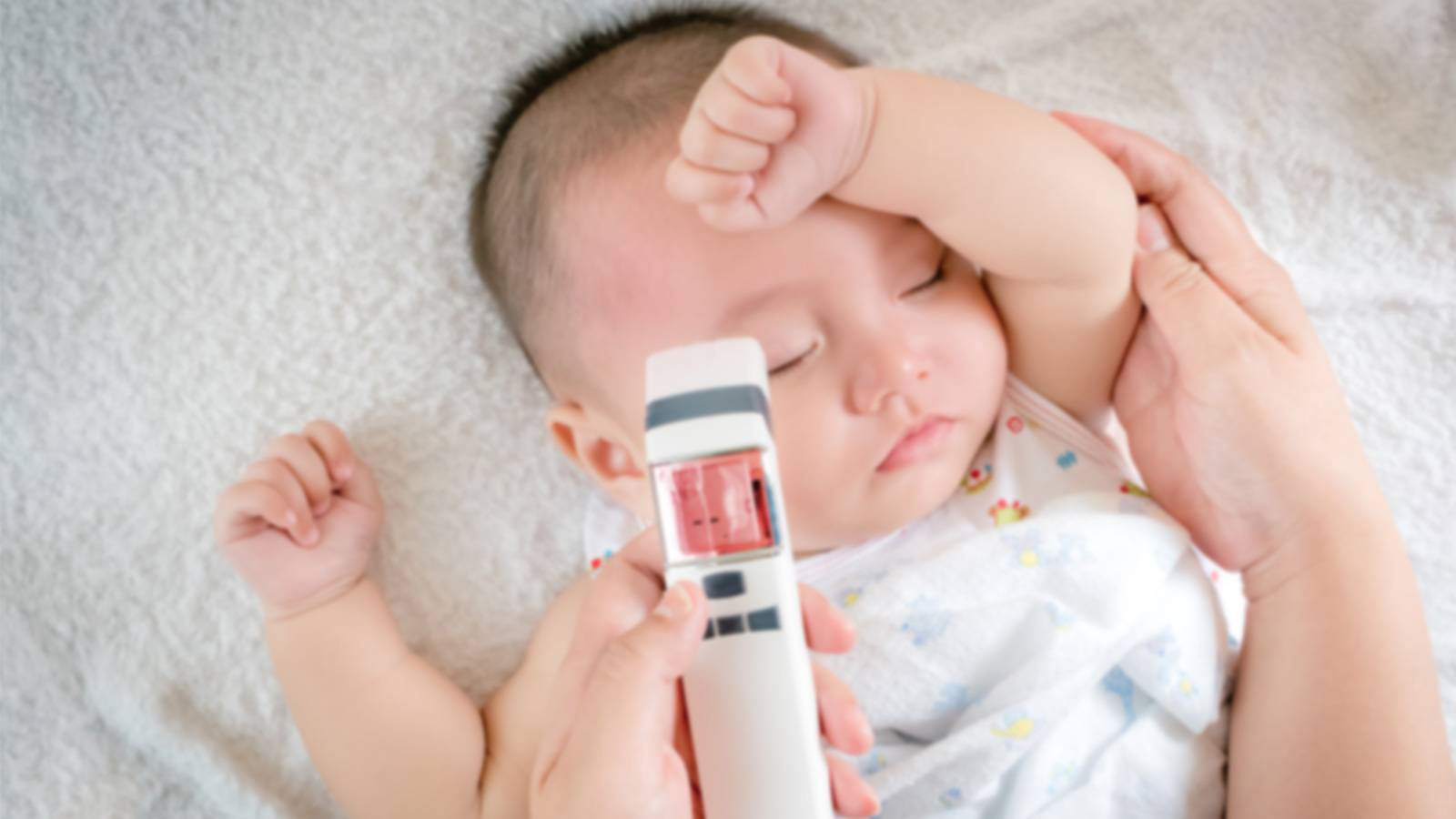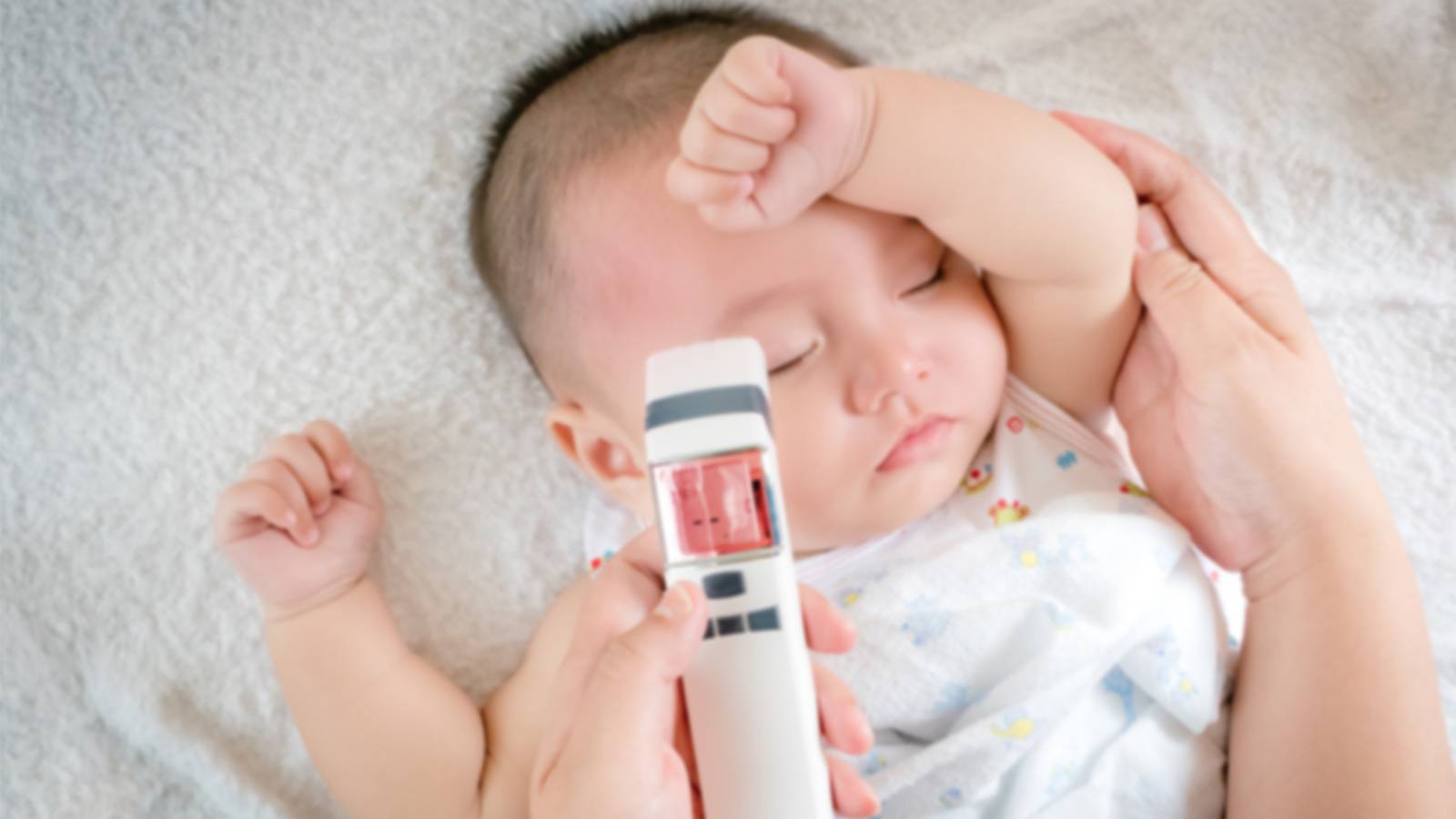Most of these illnesses are nothing to worry about, but you’ll want to know how to manage them.

While most babies are born healthy, they are prone to illnesses as their immune systems are still developing. Keep a lookout for these six common conditions, so you can determine if your baby might need medical attention.
1. Acid Reflux
WHAT IS IT? Acid reflux occurs when stomach contents flow back into the oesophagus, causing irritation and pain. This is common in babies because the lower oesophageal sphincter (LES), a circular band of muscle that acts as a valve between the oesophagus and the stomach, is immature.
SYMPTOMS Spitting up frequently, refusing feeds, coughing or gagging while feeding, vomiting, excessive crying or irritability, wet burps, a swollen/tender tummy, arching their back during or after a feed, or drawing their legs up to their tummy after feeding.
TREATMENT Your baby is more likely to experience reflux when his stomach is too full. Offer smaller and more frequent feeds, so that there’s less food in the stomach and hence less pressure on the LES. Frequent feedings will also stimulate the production of saliva, which neutralises stomach acid and lubricates the oesophageal lining. Burp your infant more frequently to relieve gastric pressure and prevent acid reflux. Keep baby’s posture upright for about one hour after feeding. If possible, breastfeed as breastmilk digests faster than formula.
Ear infections are painful, so your baby will cry when he is feeding or when lying down as suckling and lying flat increases pressure on the Eustachian tubes.
2. Colds
WHAT IS IT? Colds are caused by viral infections that affect baby’s nasal membranes and respiratory passages, causing them to swell and fill with mucus.
SYMPTOMS Nasal congestion and a runny nose are the main indicators that your baby has a cold. Coughing, wheezing, sneezing, a decreased appetite and a low-grade fever are other signs.
TREATMENT Keep baby hydrated, use humidifiers to keep the air moist and their nasal passages open (nasal sprays and nebulisers). Always consult a doctor when you suspect your baby has a cold. If the nasal discharge becomes thick and yellow, the doctor may recommend cold medicine. Antibiotics will not be effective against viral infections as they fight bacteria, not viruses.
3. Ear Infections
WHAT IS IT? Ear infections occur when fluid accumulates in the middle ear (the space located behind the eardrum) and becomes infected by bacteria or a virus. Ear infections are often painful because of inflammation and the buildup of fluids in the middle ear, which presses on the eardrum.
SYMPTOMS Ear infections are painful, so your baby will cry when he is feeding or when lying down as suckling and lying flat increases pressure on the Eustachian tubes. Other signs include difficulty sleeping, loss of appetite and diminished hearing. This will improve once the infection is cleared and his ear is free from the blockage.
TREATMENT If you suspect an ear infection, consult your doctor. If the eardrum looks very infected, she may prescribe an antibiotic. It is important to seek medical help as recurring untreated ear infections may lead to more serious implications, such as hearing loss and speech delay.

4. Oral Thrush
WHAT IS IT? An oral infection caused by forms of a fungus called candida, which is present in the mouth most of the time. When the body’s immune system is weaker, the fungus can grow, leading to sores in the mouth and on the tongue. Oral thrush in babies may occur because their immune systems have yet to mature and are less resistant to infection. It can also occur after antibiotic treatment as the medication reduces the levels of healthy bacteria in a baby’s mouth, allowing fungus to grow.
SYMPTOMS Thick, white patches on the roof of the mouth, inner cheek walls and on the tongue. There may be redness around the patches which look like lesions. The sores can slowly increase in number and size. Unlike milk residue, the patches do not wash or rub off easily. Babies may tend to fuss when they feed as their mouths are sore.
TREATMENT If you suspect your infant has oral thrush, consult a doctor who may then prescribe an oral fungal medication, as well as pain relief. The infection may take about two weeks to clear up. If your baby is breastfed, the doctor may recommend that you apply the medication to your nipples to prevent the infection from passing back and forth.
Babies contract the rotavirus after touching a contaminated object and putting their hands in their mouths.
5. Roseola
WHAT IS IT? A contagious viral illness that commonly affects young babies between 6 months and 2 years.
SYMPTOMS Roseola is characterised by upper respiratory illness, three to seven days of high fever, followed by a distinctive pinkish red, patchy rash on the body when the fever subsides. The rash usually spreads to the neck, face, arms, and legs. The infant may also lose his appetite and have swollen lymph nodes.
TREATMENT Most of the treatment is focused on lowering the fever. Roseola is often diagnosed only after the fever drops and the telltale rash appears. Prior to that, the doctor will check that the fever is not caused by another type of infection. Antibiotics are not effective against roseola because it is caused by a virus and not bacteria. To prevent dehydration, feed your infant more fluids like breastmilk or formula, and depending on age, water with ice chips and infant electrolyte solutions.
6. Rotavirus
WHAT IS IT? A contagious virus that causes gastroenteritis (stomach flu) and severe diarrhoea. It is spread through the faeces of infected people. Babies contract the virus after touching a contaminated object and putting their hands in their mouths. The virus can also spread through droplets in the air.
SYMPTOMS Severe watery diarrhoea, vomiting, fever, abdominal pain and loss of appetite. Rotavirus can cause severe dehydration in babies and children, resulting in hospitalisation. The infection usually resolves on its own after three to nine days.
TREATMENT Hydrate your baby well. For babies who have yet to start on solids, breastfeed often. For older babies, offer water and infant electrolyte solutions. Serve simple, non-oily foods like plain porridge, plain pasta, crackers, or toast which will not irritate your baby’s digestive system. Avoid giving apple juice, dairy products and sugary foods, which can worsen your little one’s diarrhoea. The best way to protect against this disease is to get a rotavirus jab. To curb the spread of the virus, practise good personal hygiene and handwashing, especially after diaper changes, bathroom visits and before meals.
Photos: iStock
Like us on Facebook and check SmartParents regularly for the latest reads!
In case you missed these
9 incredible things you’ll cherish about newborn babies
7 baby care skills you’ll master within baby’s first month
MUM’S BLACK BOOK Breastfeeding help for mothers [Photo Gallery]
